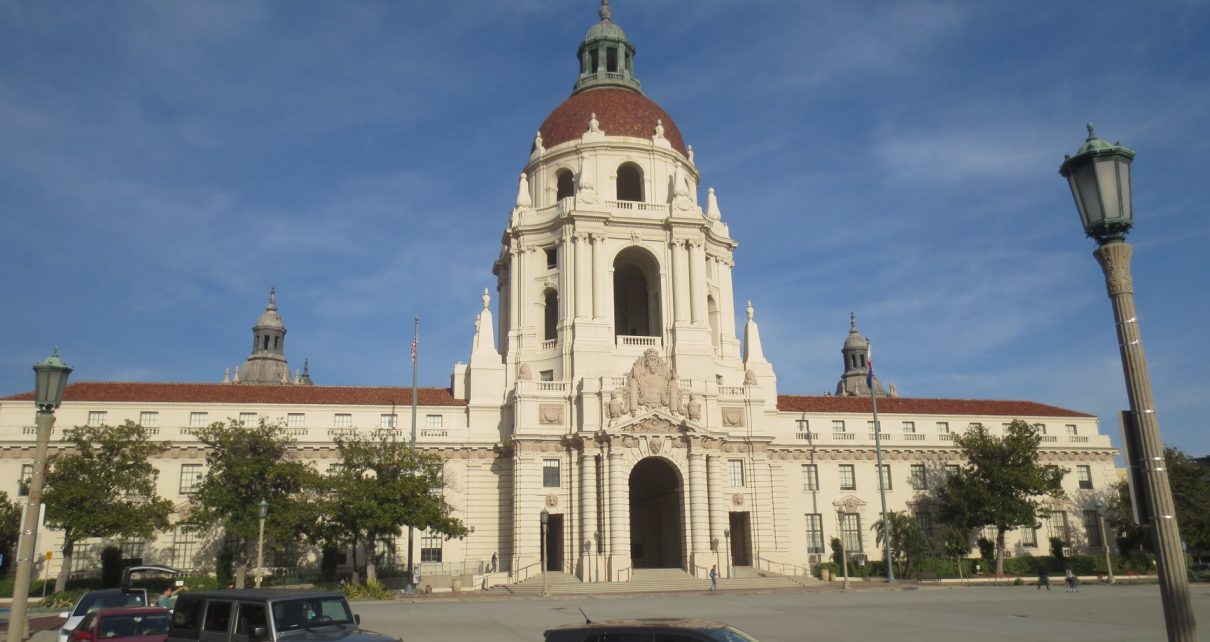
Pasadena City Hall. (Photo: Evan Symon for California Globe)
2020 March Primary Preview: Pasadena Mayoral Election
The California Globe takes an inside look into the Pasadena Mayoral race.
By Evan Symon, January 23, 2020 7:11 am
The Pasadena Mayoral Race:
Pasadena, which sits Northeast of Los Angeles and to the west of Glendale and Burbank, is something at a crossroads coming into the 2020’s. The city has both been building several new large housing complexes even before SB 50 was thought up and has had an active and growing movement to stop more higher-density housing, which they have done successfully.
Like many areas of California it also has a growing Latino population, but it also has a growing Asian population and a steady white population as well. The city, long known for the Rose Parade and being the home of NASA’s Jet Propulsion Laboratory and CalTech, is only seeing incomes, housing prices, and the percentage of people with college degrees go up.
For candidates entering the race they’re facing a real battle of YIMBY vs. NIMBY, a battle between preservation and new taller buildings, and deciding whether to expand the city or keep it as it is.
And since Pasadena’s behavior has influenced many cities on housing issues, both inside and outside of SoCal, whoever becomes mayor is almost promised to be on the forefront of California’s continuing housing crisis.
History of the Pasadena Mayoral races:
Democrats have largely been in charge of Pasadena in recent history, with only one Republican mayor being elected since 1982. The biggest mayoral name in Pasadena has been Bill Bogaard who held office from 1984 to 1986 and from 1999 to 2015. In 2007, the last race in which a registered Republican ran against him, he won 89% to 11%.
More recently Terry Tornek, the current mayor, won in 2015, beating former city councilwoman Jacque Robinson 54% to 46%, which indicates that while he does have the popularity, it wasn’t the anywhere near the landslides mayors before him have had.
Terry Tornek:
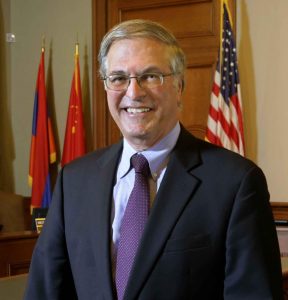
The Incumbent, Democrat Mayor Terry Tornek started off outside of California. He started his career in politics serving as a member of the Springfield, Massachusetts City Council in the 1970’s. After moving to Pasadena in the 1980’s, he then worked to save the now-famous Old Town section of the city. By 2009 he was elected to the Pasadena City Council, and by 2015 he had become Mayor.
During Mayor Tornek’s term Pasadena has experienced a lot of ups and downs. Homelessness hit both 5 year highs and decades-long lows during his term before falling by 20% in 2019, although much of the long-term fall can be attributed to a stronger economy and policies made during Mayor Bogaard’s term.
He was also instrumental in stopping the looming over-half-a-century 710 Freeway expansion, something over a dozen mayors before him had tried to do. Crime rates have also gone down and the city has become one of the most financially healthy in the Los Angeles area. However, there have been many who have complained about him blocking development, specifically for much needed affordable apartments. While many larger complexes have been built, many have been stopped or halted due to neighborhoods and houses being granted ‘historic’ status, or the city only designated so many areas for larger scale development. Pasadena Public schools have also faltered during his tenure, as three have closed due partially to falling enrollments, with more likely on the way.
Tornek enters the race with endorsements from several high profile politicians including Congresswoman Judy Chu (D-CA) and state Senator Anthony Portantino (D – La Canada Flintridge).
Opponent – Victor Gordo:
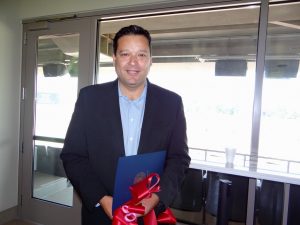
City Councilman and fellow Democrat Victor Gordo is Tornek’s main challenger. Councilman Gordo has lived in Pasadena since the age of five and has served on the City Council since 2001. He also served as Vice Mayor for two terms between 2009 and 2013.
Gordo has largely been popular in his district. In some years he has won over 90% of the vote. But in recent years he has been getting more criticism. Most notably his stance on cannabis businesses in Pasadena nearly got him into a legal battle, and he faced a recall scare in early 2019 as a result.
Gordo shares the opinion of Tornek on many policies ranging from homelessness to traffic reduction to underdevelopment. Like Tornek, he is largely against higher-density buildings in many areas. But the councilman has also shown to want tougher eviction protections for tenants, a stance which has won him many supporters who rent and have faced evicitions in the past several years. Gordo has also shown to be pro-immigrant by authoring a council matter that boycotted Arizona in the wake of a 2010 immigration law. And while he has supported many Pasadena programs and raises, during the Great Recession he had voted to suspend raises for City Councillors.
He is currently endorsed by former mayor Bill Bogaard and the Pasadena Firefighters Union.
Other Opponents
Republican Major Williams is also currently tracking as a mayoral candidate in Pasadena, but is not expected to garner a significant percentage of the vote.
What does this mean?:
The Pasadena race may have a lot of statewide implications.
Pasadena has been shown to be influential on housing, even serving as something as a guinea pig for SB 50 before SB 50 was even written. The council has also voted against state housing law on height allowances for high-density buildings making them fairly noticed in Sacramento. The winner of the mayoral race is going to have to serve a city largely split on what to do about more housing and infrastructure.
The 710 Freeway expansion halt also suddenly leaves a large swath of Pasadena open to development. The candidate who wins would have to help decide what to do with a sudden opening of land. With many other opening spurs and roads coming up in California, Pasadena’s plan would most likely serve as a blueprint for all future projects of the type across California.
It’s also a good bellwether for the rest of California. The race is expected to be close between two candidates close but also acutely apart on the political spectrum, a situation that parallels many races across California.
Gordo has largely been focusing on himself as a long-time Pasadena resident with years in the city council while Tornek has been giving a message of moving the city forward and sticking with the incumbent who knows what to do. But what is seemingly a local mayoral election in one of the larger Californian cities may turn out to be a look of things to come in 2020’s California.
- Bill to Require Law Enforcement Disclosure if AI Was Used To Help Write Reports - August 7, 2025
- Gov. Newsom Files FOIA Request To ‘Expose True Cost’ Of L.A. Federal Troop Deployment for Anti-ICE Riots - August 6, 2025
- California Redistricting: How Newsom’s Plan Will Demolish Hard Fought GOP Gains - August 6, 2025


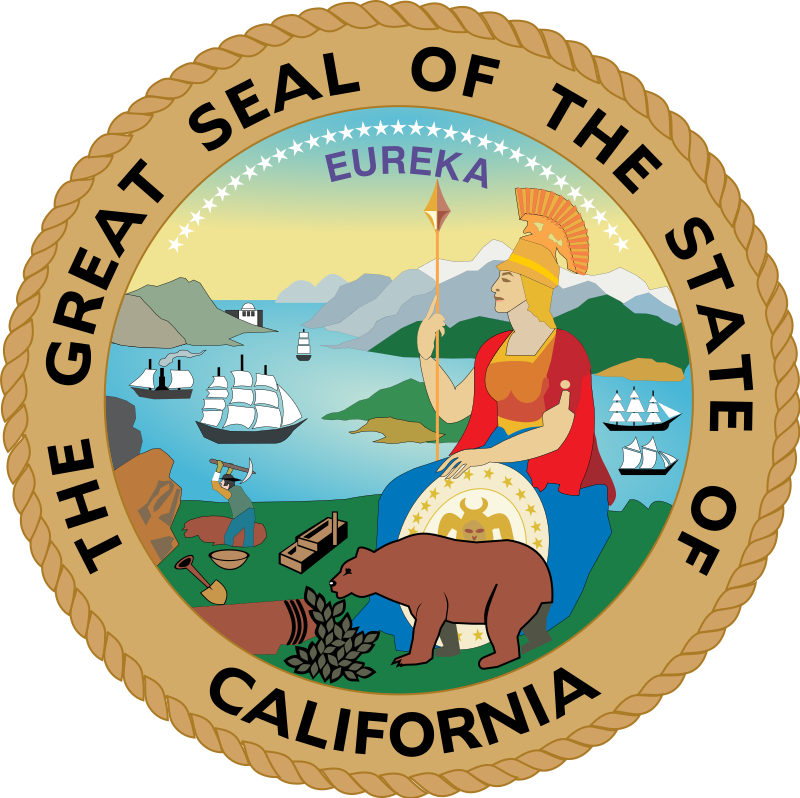
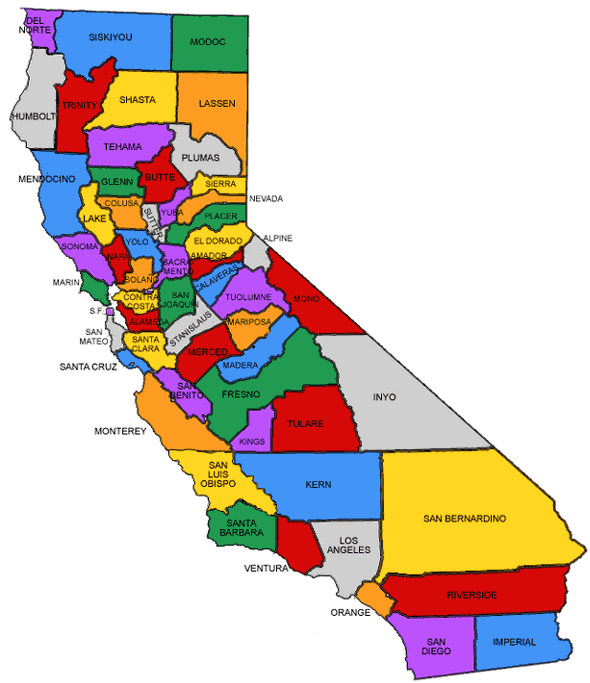
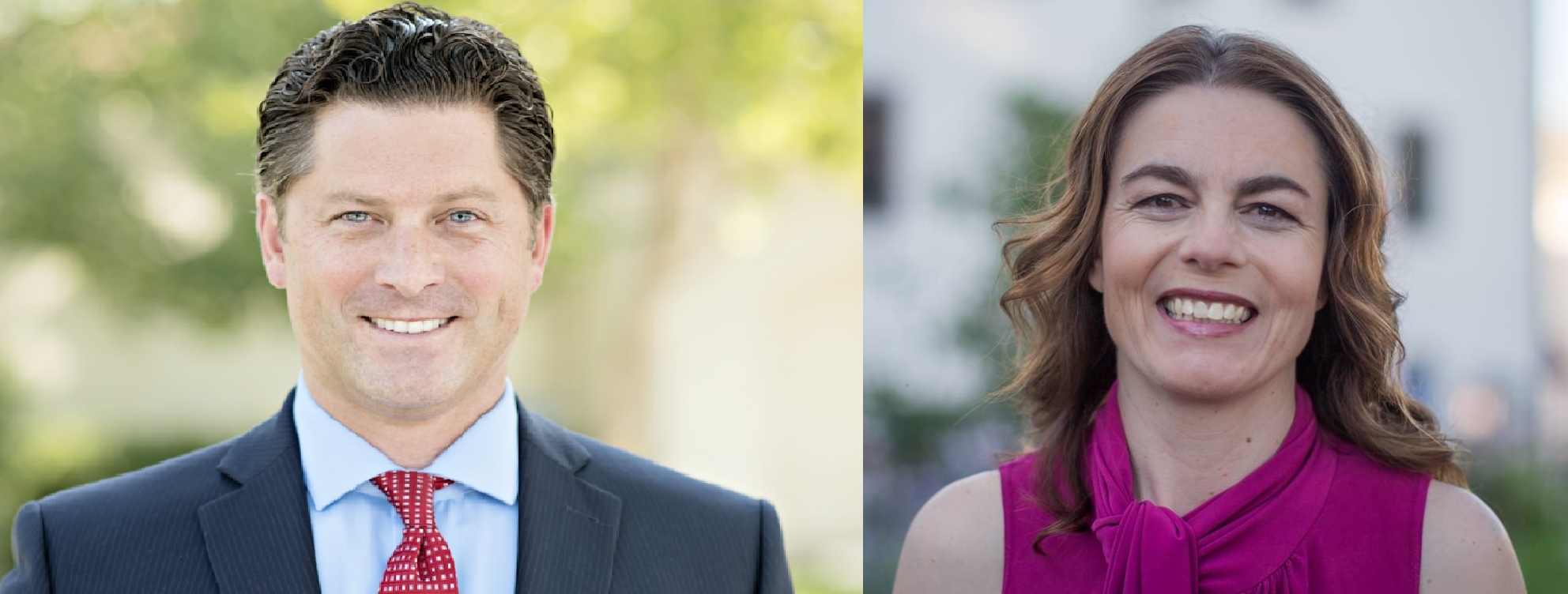
Any chance of doing anything really impactful about affordable housing and homelessness in Pasadena was destroyed by the city decades ago when it built parking structures in its Old Town district that ended up in stimulating redevelopment into an upscale restaurant and date night district. Old Town used to be an area of old multi story buildings that housed thrift shops, used clothing stores, pawn shops on the bottom floors and run down BUT AFFORDABLE housing for what we now call the homeless. If you want to create affordable housing then bring back urban blight, run down buildings, flop houses, old small-hotels and cheap diners that once existed in Old Town. But it is too late for that. Instead what is now called affordable housing is $650,000 to $1mil condos downtown on pricey commercial land where the city’s inclusionary housing law mandates that four out of every five units built will overpriced to subsidize one inclusionary small studio unit that is sold to those connected to city hall elites and then resold years later for a profit. So when the next housing downturn comes those four units will be overvalued to the market and the drop in prices will be deeper (i.e., underwater mortgages). So count me a cynic about any prospect of affordable housing in Democrat Pasadena.
At least Terry Tornek discovered the embezzlement of funds in the city’s utility undergrounding program when he was a city councilman and the famous ex-mayor mentioned above turned a blind eye to this crime because it was perpetrated by affirmative action beneficiaries.
Pasadena has a balkanized district form of elections serving districts around the center of the city with the mayor being the only elected official elected at large. So each district except East Pasadena has a piece of the city center to represent. This results in no effectual representative for the city center. I believe Tornek is the better choice to further the common good of the city without relapsing back into some Tammany Hall corruption that metastasized during the term of the popular former mayor.
I appreciate Evan Symon’s coverage of this mayoral race but he has no understanding that affordable housing is old, technologically obsolescent and located in divey districts which all have been eliminated by redevelopment.
Symon seems unaware of how Pasadena has gerrymandered out the NIMBY’s in Pasadena. How so you ask? Pasadena is divided up into seven electoral council districts with Districts 1, 2, 3, 5, 6 and 7 each having a slice of the city center along Colorado Boulevard (e.g., the Rose Parade route). The majority of new housing is being dumped into the city center where political representation is weak and fragmented by design of gerrymandering. Thus the political base of each district is mostly comprised of single-family residential districts around the center and a small slice of downtown which is made into a fractionated political minority. So if Pasadena was to serve as a model of anything connected to more housing development, it would be in how it has gerrymandered NIMBY’s out of the city center. Otherwise, Pasadena is like every other Democrat run city in California that criminalizes any older housing stock that does not provide the maximum amount of property taxes to the city and school district by demolishing it and replacing it with new, unaffordable housing. Only Pasadena doesn’t do it with eminent domain but by gerrymandering, general plans and upzoning commercial land with old retail and residential buildings to bring about incentives to sell the land and demolish for high density new unaffordable housing.
Glad to see Wayne Lusvardi weigh in on this. Over the years he has written the best analyses that have ever been written on these two topics in particular; i.e., (so-called) affordable housing and how the City of Pasadena operates.
Major Williams is doing a great job at campaigning! Your comment about him is an understatement! MAJOR FOR MAYOR! #majorformayor
Thank you, Jess. I have been scouring for info on candidates’ party affiliation because I want to vote Republican all the way. I need that information on the judges and I don’t know where to look. I had not been involved in California politics until now, it’s a difficult thing to ‘wade’ through, the mud is thick.
Two Democrats have the most significant amount written about them and the Republican gets a non-honorable mention?
A little biased are we?